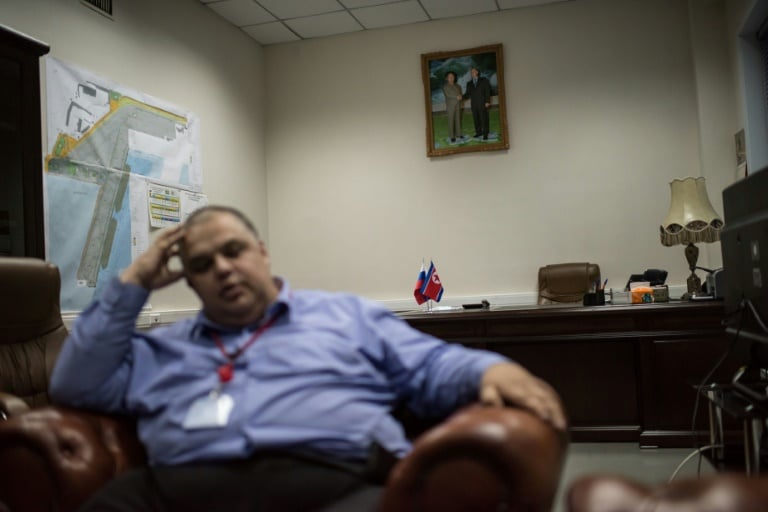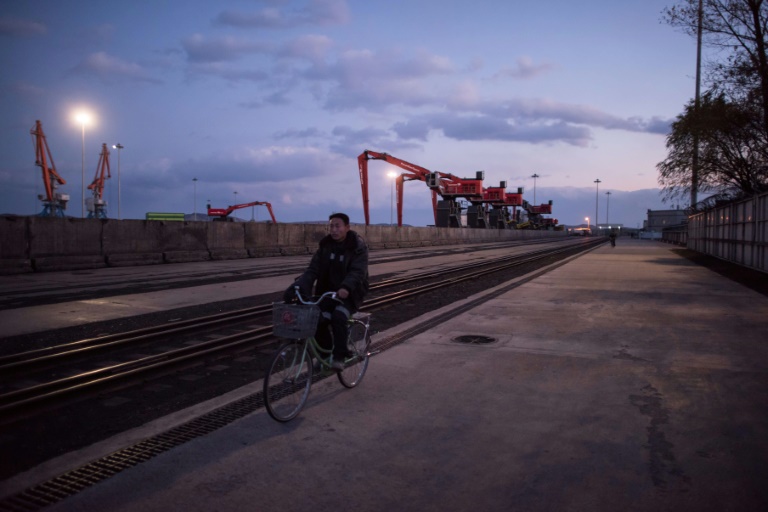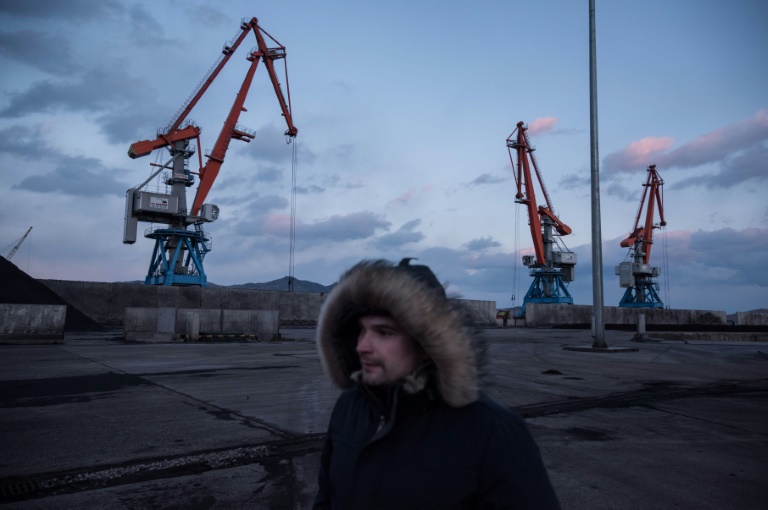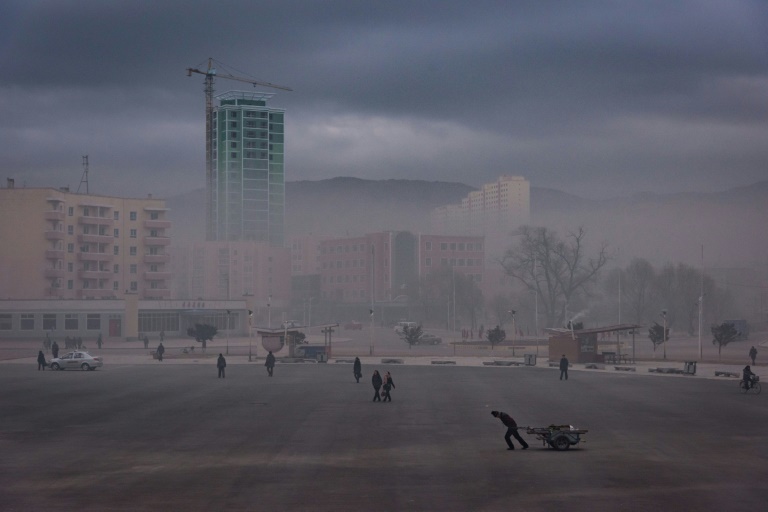Champions Cup result: Ill-disciplined Stormers thrashed by Harlequins
A mountain of North Korean coal — which would once have been bound for China — is piled up on one side of the barrier in Rajin harbour, stranded by the interdiction.
On the very next dock, around two million tonnes of Russian coal has come in by train and been shipped on to China this year by Russian port operator RasonConTrans.
Its activities are specifically excluded from the UN Security Council’s sanctions resolutions -– but attempts have been made to use it as a way to bypass the restrictions.
“They asked but we said no, we don’t do it,” said RasonConTrans’ deputy director Roman Minkevich.

RasonConTrans deputy director Roman Minkevich in his office which sports a picture of Vladimir Putin and late North Korean leader Kim Jong-Il shaking hands
The black mounds on the neighbouring wharf were evidence his firm was complying with the rules, he added.
“Behind the fence it’s Korean coal, it’s under sanctions now so it’s still here,” he told AFP.
He declined to elaborate on the source of the requests. “People,” he said. “Different people.”
The UN Panel of Experts on North Korea said in its midyear report that Pyongyang has been “deliberately using indirect channels to export prohibited commodities”.
For years the coal trade was a lucrative earner for Pyongyang — its main ally and key economic partner China imported 22 million tonnes worth nearly $1.2 billion in 2016.
But while Beijing says North Korean imports have come to a halt, RasonConTrans’ business is booming.

Until sanctions, coal exports were a major earner for North Korea, worth some #photo2.2 billion in 2016
Since starting operations in 2015 its volumes have doubled each year, and Minkevich is targeting three million tonnes next year, with a goal of five million in future.
It has between three and six ship movements a month at its pier –- number 3 in the port, which can take vessels up to 180 metres (600 feet) long -– loading 50,000 tonnes of coal on each, most of them heading for Shanghai.
– Women crane operators –
Over a hill at the back of Rajin town stands a sprawling disused oil refinery, originally built to process crude from the Soviet Union, in the days of Communist brotherhood provided Pyongyang with cheap or free materials.
Locals blame sanctions for the closure but it has been inactive for years, its throttled chimneys standing sentinel over an unfulfilled economic dream.
Two large bronze statues of the North Korea’s founder Kim Il-Sung and his son and successor Kim Jong-Il look out over Rajin.

A Russian worker walking before cranes at Rajin’s RasonConTrans coal port in North Korea
Despite the looser economic rules applying in the area, the town is bedecked with propaganda slogans seen throughout the Democratic People’s Republic of Korea, as the country is officially known.
Using North Korean labour — North Korean women are particularly skilled crane operators, Minkevich notes, probably due to their care in performing repetitive tasks — costs at Rajin are 30 to 40 percent cheaper than at Russian ports.
Those competitors on the Russian Pacific coast are also close to capacity, he says, as China and the energy-hungry but resource-poor economies of Japan, South Korea and Taiwan suck coal from Russia’s vast reserves.
Moscow and Pyongyang have long had fraternal relations, and a picture of North Korea’s late leader Kim Jong-Il meeting Vladimir Putin in the Russian capital in 2001 hangs in a RasonConTrans office.

The public square in the North Korean city of Rason, a key trading hub with nearby Russia and China
The company is 70 percent Russian-owned, with 30 percent held by the port of Rajin.
It is the third-biggest taxpayer in the Rason Special Economic Zone, set up by Pyongyang to try to attract trade and businesses to the area where North Korea, China and Russia meet.
North Koreans need special permits to enter the SEZ, and a large checkpoint at its southern entrance enforces the rules.
RasonConTrans has around 300 North Korean personnel and 110 Russian staff, and brings in much of its needs, such as diesel for its generators, directly from Russia.
It is almost entirely independent of the rickety local electricity supply, which Minkevich said was offline around 30 percent of the time.
Some aspects of the North reminded him of the former Soviet Union, said the Muscovite, but working under the sanctions regime was a “unique experience”.
There were difficulties importing parts and building supplies, he said, and “much more paperwork”.
“It’s interesting but it’s hard.”
Download our app and read this and other great stories on the move. Available for Android and iOS.